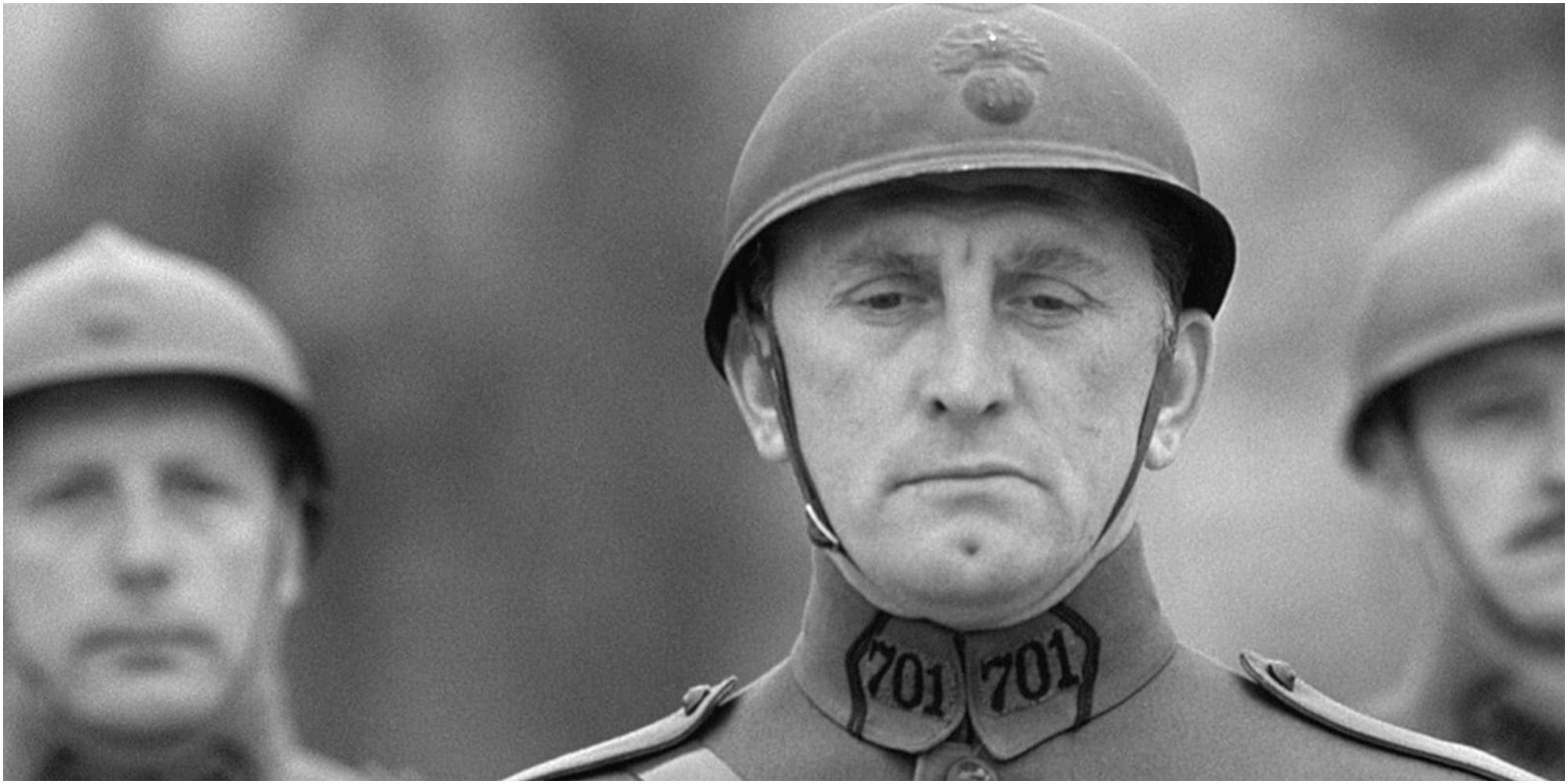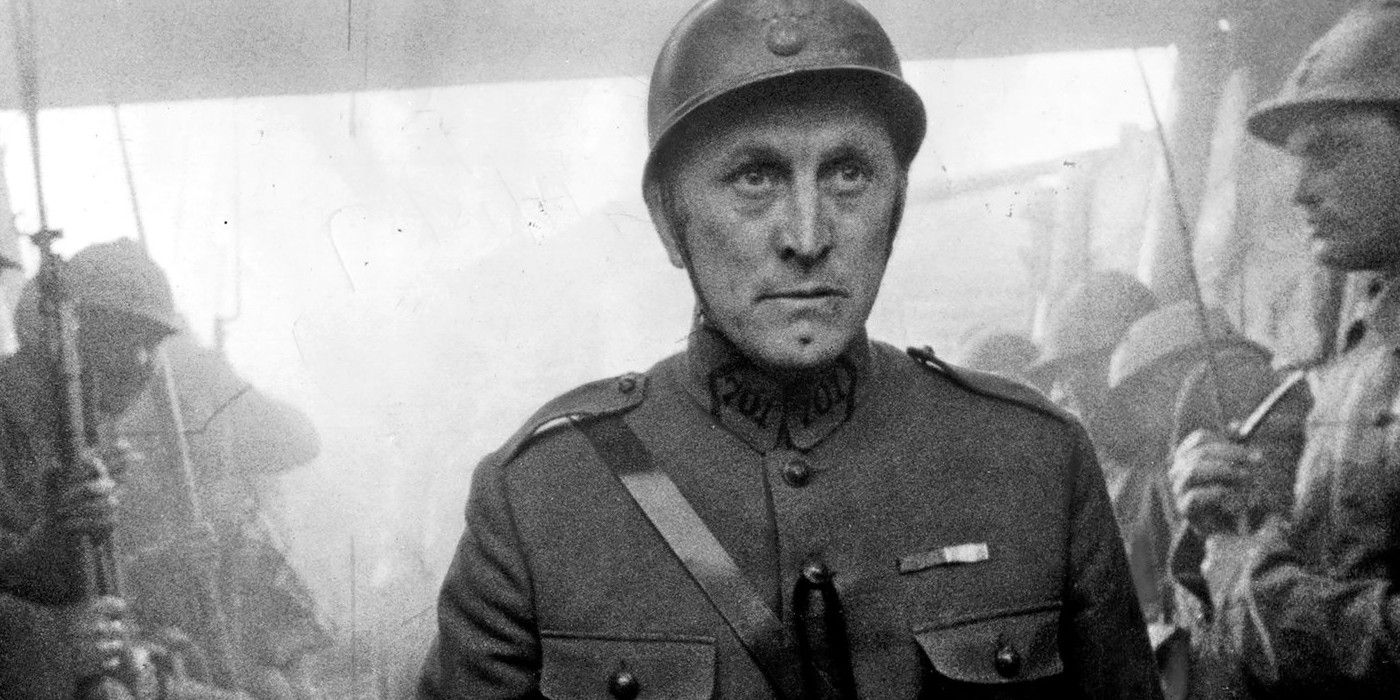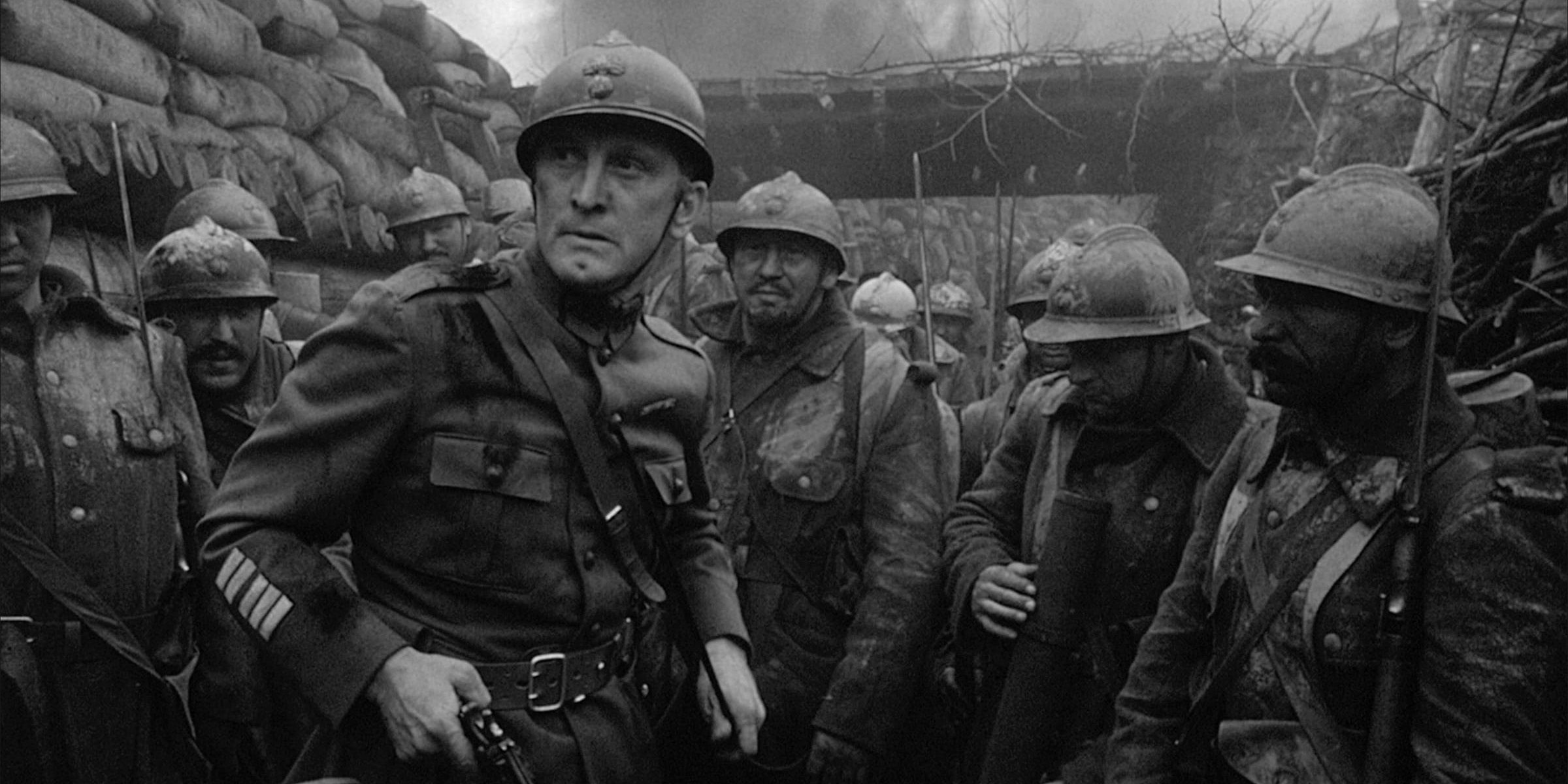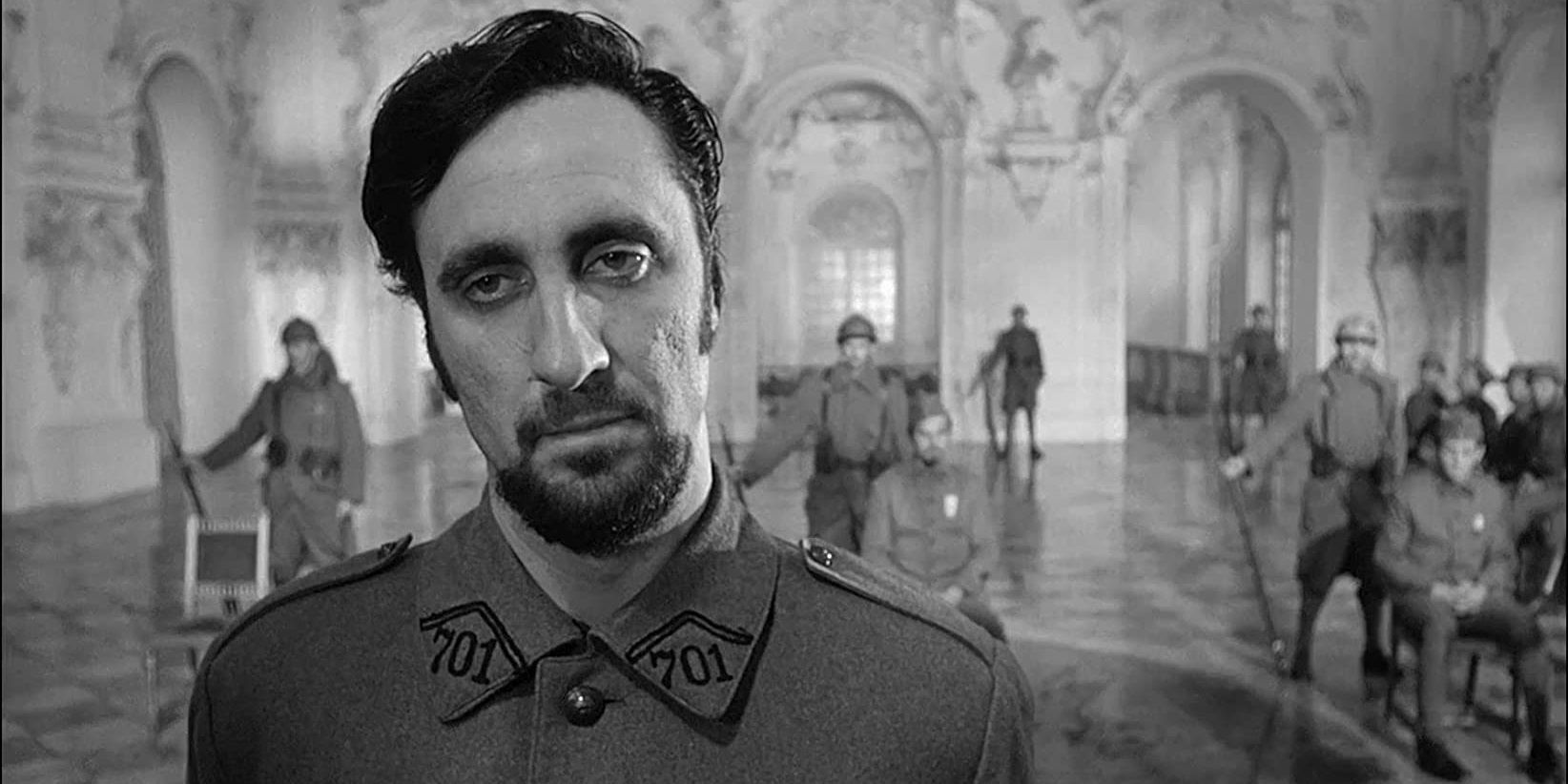
Kirk Douglas is well-known for his illustrious career in Hollywood, gracing the screens in timeless movies such as Spartacus, Ace in the Hole, and 20,000 Leagues Under the Sea. But, it’s worth noting that he collaborated with the legendary director Stanley Kubrick back in 1957 to produce one of the most impactful anti-war films ever crafted – the critically acclaimed Paths of Glory.
In the movie “Paths of Glory,” Douglas plays Colonel Dax, a commanding officer in the French Army during World War I who stands up against his superiors to protect three soldiers falsely accused of cowardice. Initially well-received by critics upon its release, and now recognized as one of the most influential war films ever made, it encountered censorship in Europe, being banned outright in France, Spain, and Switzerland. Like other groundbreaking anti-war films that shaped their genre, “Paths of Glory boldly challenged political norms, unflinchingly portraying military corruption and injustice.
Paths Of Glory Is Kirk Douglas’ Best Movie
Douglas Is The Film’s Voice Of Morality

Despite Douglas being widely recognized as a charismatic leading man in the 1950s without a shirt, it was his portrayal of Dax in Paths of Glory that stood out for its display of moral integrity rather than heroics. One of Kubrick’s most striking scenes unfolds when Dax’s regiment is instructed to advance on the “Anthill,” a treacherous German stronghold, which results in heavy casualties as soon as they set foot. As lives are senselessly lost, General Mireau (George Macready) demands 100 soldiers be put on trial for cowardice before his superior, General Broulard (Adolphe Menjou). However, Broulard manages to persuade him to reduce the number of accused soldiers to merely three – one from each company.
Previously a criminal defense attorney, Colonel Dax offers his services to defend the trio during their military trial. However, this court, which appears unfair, rejects evidence that could clear the soldiers’ names. In a memorable scene, Dax delivers an emotional address, asserting that the case is “a travesty of human justice.” Regrettably, his appeals fail and the three are condemned to face execution by firing squad the day after.
Why Paths Of Glory Was Banned By Various Different Countries
The Film’s Portrayal Of Corruption Was Too Much For Post-War Europe



In the immediate aftermath of World War II, approximately a decade later, Stanley Kubrick’s movie Paths of Glory, which depicted the high-ranking French officials as arrogant and corrupt, stirred up significant controversy in Europe. Given the extensive devastation caused by the war and the raw emotions still lingering, it was no surprise that the French government expressed strong opposition to Kubrick’s film, preventing its release and distribution within their borders until 1975. The movie faced similar bans in Spain under dictator Francisco Franco, as well as in Switzerland and West Germany, who sought to maintain diplomatic harmony with France by refraining from showing the controversial film.
Nevertheless, the suppression of Paths of Glory did not prove victorious, and the movie has since garnered both commercial and critical acclaim, being hailed by many as one of the greatest war films ever made. The film’s steadfast morality in the midst of appalling corruption sets it apart from conventional wartime films, while Kirk Douglas’ exceptional portrayal of righteousness elevates Paths of Glory to unprecedented levels.
Read More
- Clash Royale Best Boss Bandit Champion decks
- Vampire’s Fall 2 redeem codes and how to use them (June 2025)
- World Eternal Online promo codes and how to use them (September 2025)
- How to find the Roaming Oak Tree in Heartopia
- Mobile Legends January 2026 Leaks: Upcoming new skins, heroes, events and more
- Best Arena 9 Decks in Clast Royale
- ATHENA: Blood Twins Hero Tier List
- Clash Royale Furnace Evolution best decks guide
- Brawl Stars December 2025 Brawl Talk: Two New Brawlers, Buffie, Vault, New Skins, Game Modes, and more
- How To Watch Tell Me Lies Season 3 Online And Stream The Hit Hulu Drama From Anywhere
2025-04-28 01:22